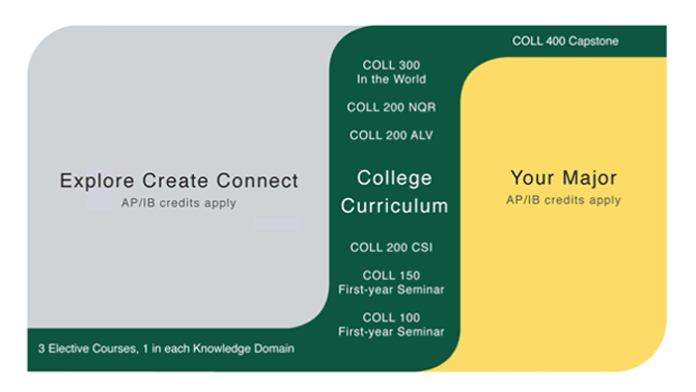The idea of COLL classes is appealing and interesting. Introductory courses into specific subjects that also explore the skills necessary in further education and the workplace, such as presentation or research skills, are beneficial for college freshmen, when everything is new and different. The small class size allows freshmen a more comfortable setting in which to get to know each other, their professors, their skills and their interests. This, at least, was my impression of COLL classes when I first heard about them.
However, so far, I have been severely disappointed in my COLL classes, and it doesn’t seem that I’m alone in this opinion. Rather than feeling like I am delving deep into a subject while developing valuable skills, I’ve felt confused as to what I am supposed to be learning or doing. The classes are interesting but incredibly unstructured, and I have often struggled for instruction. Coming straight from high school, where structure is the name of the game, it’s difficult to deal with.
The strange thing is, this hasn’t been a problem in any of my other classes, even in my lecture-style courses. There is always a feeling that there’s a goal to be working toward or an underlying theme to the course. In my other courses, there is a semblance of structure, and I know what I’m supposed to read, what papers I’m supposed to write, and what presentations I’m supposed to give. The professors know what I should be doing.
I don’t think this is the fault of the professors of my COLL classes; I think my professors are just as confused as I’ve been. The idea of the COLL class is appealing, but the implementation is shoddy, and it’s probably due to lack of communication.
I fear that the administration put these classes in place without any actual instruction to the professors, because most of the time professors don’t need instruction — they know what they’re teaching, and they understand how their courses work. But these courses aren’t supposed to be like every other college course, and throwing them at professors with the message of “figure it out” has left both the professors and the students floundering. The great majority of professors, while they enjoy teaching, have never actually received formal educational training.
There needs to be a groundwork laid out in these COLL classes for what specifically the professors should explore — not subject-wise, but skill-wise. These subjects might include what types of citations should be taught, whether research or opinion papers should be attempted, whether presentations or creative projects should be required, or whether students should engage in group work to introduce working with a team in a more formal setting than a high-school classroom. The problem is not the professors but the confusion around what needs to be taught in a COLL class other than the guiding subject matter. Every professor is teaching something different to try and fulfill the requirements of the COLL, meaning the students – rather than learning ground skills helpful later in life – all learn something different and wholly confusing, and learn it badly.
So, while the idea of COLL classes is one that shows an interest in student preparedness, the actual execution has been almost the opposite, which is as disappointing as it is unhelpful.
Email Taryn MacKay at tmmackay@email.wm.edu

